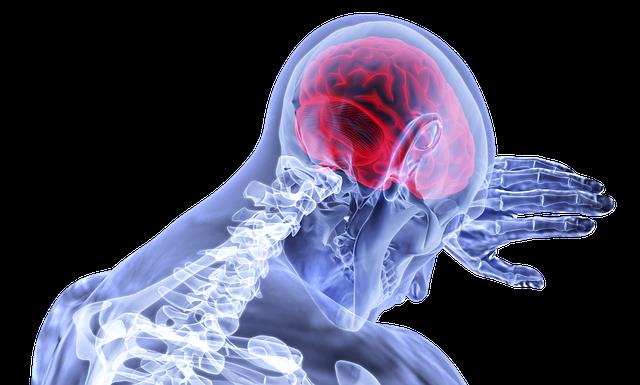
Backaches – a widespread Affliction
It’s not just in the pain-relief ointments that you hear people in pain exclaiming an ‘ouch’ or ‘ah’ advertisements, in real life, too, there are umpteen sufferers of backaches. After headaches, backache is the most common affliction that strikes people worldwide. It is estimated that more than 540 million people suffer pain in their backs, irrespective of their gender or social status. 
Medicines & Drugs Are Not the Answer
Recent studies suggest that the array of medical treatments, including drugs, surgeries and treatments are not the solutions that really work for the sufferers.
 Lancet papers published in March 2018 call governments and health leaders to “tackle entrenched and counterproductive reimbursement strategies, vested interests, and financial and professional incentives that maintain the status quo”.
Lancet papers published in March 2018 call governments and health leaders to “tackle entrenched and counterproductive reimbursement strategies, vested interests, and financial and professional incentives that maintain the status quo”.
Hence, you ought to enlighten yourself before you cough out vast amounts of funds on invasive medical treatments.
Avoid MRI
Doctors often suggest patients of backaches undergo MRI to determine the exact affected area of the back or the faulty area that causes ache. However, according to Dr Dennis C. Turk, professor of anaesthesiology and pain research at the University of Washington and an ext president of the American Pain Society MRI seldom shed light. It tends to reflect spinal abnormalities even in with those bereft of backaches. MRI scans, however, are appropriate for those experiencing neurological symptoms.
Pop in the Pill only if Unavoidable

Ours is an over-medicated society; drugs are ingested into our bodies more than ever before. Narcotic relieving medicines such as Oxycontin and others like Vioxx and Bextra are usually prescribed by doctors to manage backaches. These medicines can be addictive and cause mood swings. The latter two had been ousted from markets after being discovered to be the causative factor behind heart attacks. Prescribed anticonvulsant pills like Lyrcia and Cymbalta, an anti-antidepressant, as per the reviews of Cochrane Collaboration, a nonprofit organization for health information imparted only temporary relief.
Avoid Surgeries

Surgeries like spinal fusion surgery and diskectomies are the line of treatment adopted by doctors to treat severe backaches. However, one should explore all alternative options before going for it as in some cases infections and other complications develop.
With a growing realisation of the shortcomings of the medical model in dealing with chronic backaches, medical experts are advocating a paradigmatic shift in treatment. Professing a biopsychosocial model they call upon doctors and patients to see pain as not just a biochemical reaction, but as phenomena influenced by psychological and social lives.
Understanding Backache As a Bio psychosocial Issue
Cathryn Ramin, a veteran whose gripping investigative story on the back pain industry in the US was published last year propagates the biopsychosocial model – the idea that pain is not just a biochemical reaction, but is also experienced within and influenced by our psychological and social lives. Back pain needs to be accepted as a part of life and, hence, the better approach would be to keep oneself physically active in the right manner and evolve strategies to deal with stress.
Since the majority of backaches result out of lifestyle issues, in particular to the sedentary lifestyle -prevention and treatment ought to be sought in the realm of individual habits – those that stress or protect the back.
Effective Ways of Treating Back pain
Exercise Correctly & Maintain Right Postures
A useful therapy developed by Dr John E. Sarno, a back specialist with the New York University School of Medicine is based on insight techniques. He believes that 99 per cent of backaches is the manifestation of our poor responses to stress. He encourages patients to develop into their muscle-tensing reactions and advocates simple exercises to improve fitness and dilute tension.

Dr Stuart McGill’s Big Three offers a set of exercises for stabilising the core muscles. It entails a modified back curl-up, side bridge and quadruped bird dog. These exercises are easy on the spine while enhancing the muscle challenge and the motor control system to ensure that spine stability is observed in all other activities.
Practice Alternate Remedies
Yoga and tai-chi practices that combine postures and exercises with breathing and mindfulness with breathing are tremendously beneficial to sufferers of backaches. In the long run, chronic and aggravated cases can also be successfully dealt with through regular practice.

Avoid Prolonged Rest
Understanding your pain in the light of ‘fear avoidance’ model is immensely useful. Most patients tend to lose a sense of control over their body perceiving pain as unworkable except with the aid of medicines and rest. Prolonged rest and medication that eventually offers little help make one feel disconnected and frightful of movements. Hence, a better thing to do is to keep moving on and managing little by little your day to day life.
Consider Psychotherapy

There is a definite connection between our body and mind – this connection is pretty well revealed in backache cases. In some of the affected people, according to Tim Kent, a consultant adult psychotherapist at the Tavistock and Portman NHS Trust, “the back pain, at some level of the patient’s mind, is associated with something terrible and traumatic that interrupted their development and that has been cut off from consciousness”. CBT or the Cognitive Behavioural Therapy is especially beneficial for ridding the ache from one’s back.
In therapies people usually begin with talking about their physical pain. But, eventually, as they open up with their repressed trauma, they feel a decrease in their focus on back’s symptoms. As they feel more able to face their lives, the pain dominates lesser.
Thine Healer Is Thou Alone

Reading the above should have helped you realise the actual realities of backaches and its treatment. The truth is inescapable – you can heal your back pain mostly on your own, without the invasive and expensive medical interventions. Pop the pills or go under the surgeon’s knife if only the affliction is unmanageable otherwise.
